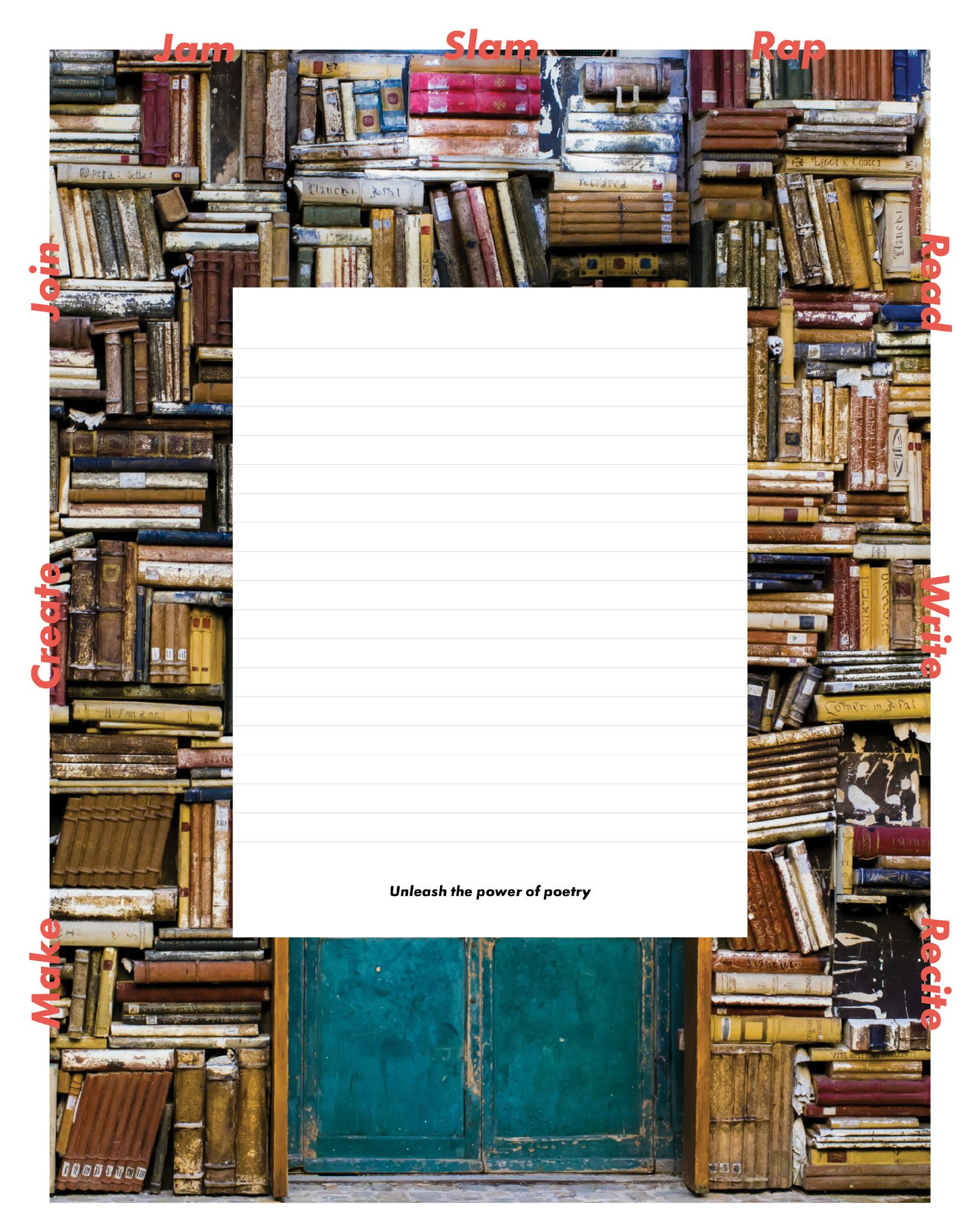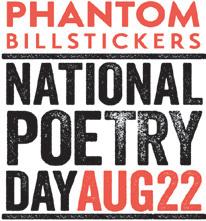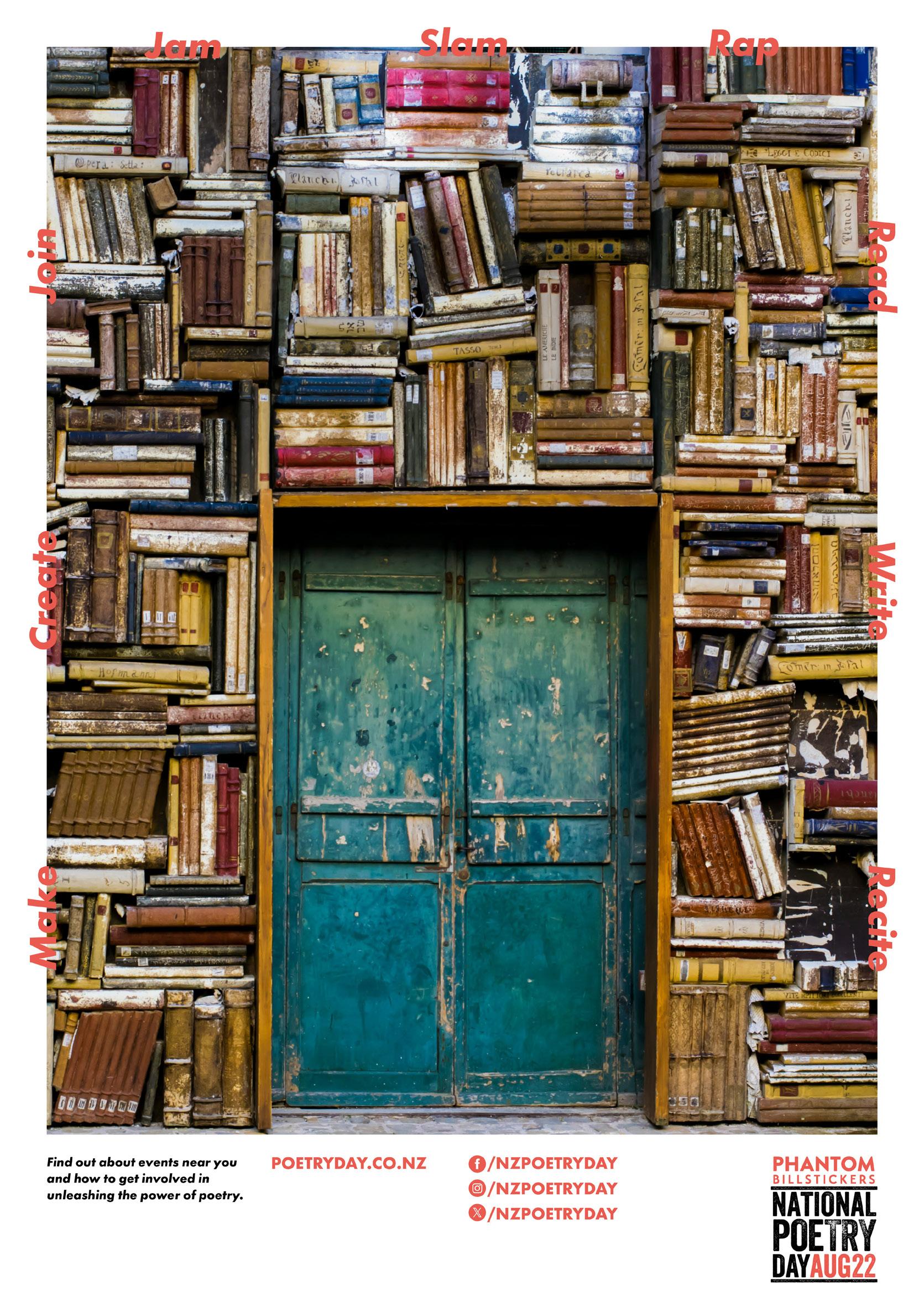Poetry Aotearoa







Judged by Tracey Slaughter
When I first arrived on the islands — I felt like I was at home. gondolas / vaporettos with fingerprint-carved oars pushing apart waves passing by, greeted me elated as if to welcome — benvenuto sunlight / I held my hands close up by my nose it stung my eyes and the buildings had worn their salt-chewed cobble so long that the rot dug deeper marinated in a grime solution of accumulated salt, appearing as filigree veins beneath the vitrified mirror that lay, sprawled across my soles
Now that I’ve grown up I no longer suckle honey from my mother yet instead I swallow the bitterness of salt as I look into the unfamiliar eyes of passersby / avoiding the recognition of a square in the front camera the sea could’ve gripped my knees if I was as small as I was back then.
The art vendor sits on his stool his canvas bleeding hues and pigments that no longer existed / that were truly exquisite by my lapping canal, a grey sky
smoldered into orange with ampules of pink a tattered house / scarred over time / seen as muted ochre mixed with rose a precariously hung railing / twisted into delicate motifs of lace to me, that is not home.
The gondola, almost like floating cargo / Benvenuto the welcoming is hollow. The buildings rot had long burrowed deep appearing as eroded scars / drifting in the creases of rippling current the ground is sinking, and yet lemon still stings my lips / the descant of chattering clustered close / my mind is dressed in silver glitter as if nothing has changed
Grace Cameron
When I was four, I was told, ‘big people don’t cry’
That crying was a reaction only seen in little kids
The ones who wrinkled their nose at strange-smelling food
Who grazed their knees on hard concrete floors
Whose sweaty hand clung to their mum’s, begging her to stay
When I was four, I never saw big people cry
So I thought they didn’t
When I was eight, I was sure, ‘big people don’t cry’
That softness belonged to little kids
The ones who felt words like sharp paper cuts
Who ripped their homework in half with a trembling breath
Who lost their favourite toy, and with it, a piece of their own soul
When I was eight, I never saw big people cry
So I told myself they didn’t
When I was twelve, I knew, ‘big people don’t cry’
That weakness was reserved for the little kids
The ones whose best friends turned a stranger overnight
Whose failing grades became shadows attached to their self-worth
Who sat alone on the swing, the chains softly creaking
When I was twelve, I never saw big people cry
So I accepted they didn’t
Now, I am sixteen
Maybe the reason I never saw big people cry
Was because they learnt before me not to
Instead, they tucked their tears away behind a smile,
Pressed down the sob until it blurred into everything else, Carried the silent stone in their chest where the words should have been
So now I do the same —
The cold glare of the mirror, The pain of rising again after each silent fall, The longing for my mum’s hand, the one I let go of too soon, I seal it all in a glass jar, buried beneath my bed
But after sixteen years, it’s filling up fast
And now,
I guess I count as a big person?
But if big people don’t cry, Then what happens when my jar becomes too heavy? When the next tear spills over the edge? Does it just . . . crack?
Split down the middle and spill everything out?
Maybe that’s what growing up really is, And why so many big people still long for their childhood: No one teaches us that it’s okay to drop the jar, To let it shatter
So maybe big people don’t cry . . . They break
Jessica Hurrell
No aroma, no alluring scent No sound, no searing noise to draw me in, and others like me
But your colour, your galvanic purple painted across your tubular frame, lucid lilac
Growing green stem, maroon dots tantalizing, tasty, beautiful to the pollinators, the bees and birds
But looks can be deadly — you taught me that Your poison runs straight to my heart, disrupting the beat, breaking off the flow to my veins; my arteries scream, You slow down my heart It’s tangled within your weedy, lilac embrace Your glove holds me captive
Aliva Farooqui
There can be love and hate in the exhale of cigarette smoke
In the breath laced with the sweet toxins of an addict.
I smell your allure, grey ash in your hair; I can almost picture how you’d grow old.
Goosebumps on my arms, the brain foolishly warning me of danger, the thrill still humming in some half-forgotten instinct. Your fingers clutch the cigarette, beckoning from across the graveyard.
I forget the rot beneath my feet. I forget the stone with my name. You sit on my grave, and I limp towards it, shovel acting as a crutch. I ask if you are alive. You offer me a puff. We dance our old rhythm. And I pull the rose with its twining vines from the plaque. Petals fall, and the thorn pierces my palm, blood throbbing. I don’t let go.
The graveyard is empty, and I sit with my shovel at 6:13 in the morning, staring at someone I belonged to only in this hour, someone I bled with beneath an iron sky.
My mind goes back to throwing up in your kitchen sink a year ago, my breath sweet and head high in the salt of heaven. You smile, a blade sharper than thorns; Dead-eyed, red-eyed, angel.
I dig.
‘Leonard Rawlings?’
Nurse reads the medals on my chest then smiles, ‘Room 214. Just down the hall, left side.’
I say thanks.
She says, ‘No. Thank you.’
The hallway stretches out, a corridor straight into hell. My eyes drift into open rooms. Fragments of past lives burning inside: a woman whispering to an empty chair, a man arguing with his reflection, another reading a headline two years old.
Room 214 pauses the world for a moment.
He’s there. Thin, sketched in pencil, in a gown that reminds me of the farm, a dark patch on the waist, In the same spot his milking overalls had.
At his feet — a small grey cat, Stiff yet alert.
He scratches his neck. Eyeballs locked on mine, searching.
‘You still giving the nurses hell?’ I ask.
He blinks.
‘You’re a soldier.’
‘Yes Sir,’ I say
‘You look tired. Just back from somewhere?’ he says.
‘You could say that.’
He looks down at my boots, scratches again.
‘They don’t make boots like they used to. I had a pair of Red Bands that lasted longer than my old Hilux.’
He glances down at his own feet.
‘Now they give you slippers and something to help you disappear.’ I nod.
I lift the cat into my lap.
‘You still got her — Level.’
He blinks through me.
‘Level,’ I say. ‘She’s put on weight.’
He whispers, ‘Level . . .’
‘That’s her name.’ I nod.
‘She’s been with me a long time,’ he says, grinning. ‘They wanted to take her. Said hygiene. Policy. Said I needed proof she cured my childhood trauma.’
He snorts,
‘Bloody world’s gone soft. Softer than soggy porridge.’ He scratches his neck.
‘Back in ma day,’ he says, ‘a man just had his cat and got on with it. Didn’t need to cry about it in any bloody form.’
‘She’s a good cat,’ I say. ‘She likes you,’ he responds.
He watches her curl into a ball on my lap, and I thought:
At least something in this room still remembers me.
He looks at his hands, ‘They keep calling someone Leonard. Can’t figure out who that poor bastard is.’ He scratches his neck, slower now.
‘I’ve had seven cats in my life,’ he says. ‘All named Level. That way I won’t forget.’
His fingers tremble.
‘Now look at me . . . can’t remember breakfast. Lunch. Hell — what time is it?’
I glance at the clock.
‘It’s . . . time for a yarn.’ He chuckles. Long overdue.
‘A yarn, yeah. Maybe even a rest.’
We talk until our voices break:
The flood in ’89, the calf that slept behind the oven, and the fence he tore through chasing a cow.
He recalls the cows by name, the stream where we swam, childhood summers.
Memories return . . . but not me.
Sometimes he calls me ‘boss’, ‘you’ or ‘nurse’. But never by my name — not once.
He squints at my chest.
‘Nice pins.’
‘Some service medals,’ I say.
He nods.
I say, ‘You served too.’
He frowns.
‘You served this land. And us.’
He scratches his neck again.
‘Do you think God forgets?’ he whispers.
‘No,’ I say.
‘Even when we do.’
From six floors down, a solo violin stops mid-tune.
He closes his eyes.
‘And on the seventh day . . . ’
He exhales, ‘. . . He rested.’
The grass is soft beneath my boots, Freshly grazed, golden hills. Cows quiet. No one sang but the wind.
I stood in the paddock he loved. No headstone — just a wooden cross, his name scratched in by hand. I tie Level’s tag to the post, swinging in the breeze, sunlight illuminating his name.
I don’t cry. Instead, I look around. The fences he wired, the machinery he couldn’t throw away, the paddocks worn by his steady boots. And I remember.
If the mind forgets your story . . . let the life you lived keep whispering it.
Jane Doyle Today and tomorrow and other types of nonsense
The days sink like lukewarm sand
They soak in soap and choke. They’re bland
Saturate themselves with thoughts and feelings
Desperate for the sweetness of blue and white ceilings
And honey pot scraps, if only to remember
The taste of yesterdays, a cold November
That you claim you don’t have time to breathe
Except you sit in seconds, heave
My lungs and stew in pity
Trapped in the glare of a sleeping city
The days decay. They rot and spoil
Death before they reach the soil
Drenched before they hit the stones
Entangled in wires and old telephones
And compost heaps, if only to live
A same stale feeling, just flesh to give
Eyes like mine, they’re young and cold
Frost says ‘Their hardest hue to hold’
But when I fall, I’ll fall all free
Hung by the rope in the black walnut tree
The days blink. They emerge from the storm
‘The rain will never cease’, they warn
But poison didn’t taste so sour
When paired with sun or a daffodil flower
And tiny critters up my spine
To whisper in my ear ‘it’s fine’
And through the walls, the sound remains
A ringing of bells, a drumming of veins
And in the corner of my head
The golden breaks the black and red
Ava Dilly
As Venus begins her ascent, he prepares to abandon this burning battlefield. To flee the walls of his ashen city, this crackling casket.
An aubade of clanging steel welcomes the dawn. A dirge of dying groans, drawn from the throats of his comrades by these violent composers, these brutes born of wooden womb.
He does not yet know that the burden on his shoulders weighs far more than the frail frame of his aging father. He does not yet know that his son’s small hand will not be the only thing he guides from these gates.
Further still, lies a legacy of glory. An empire of glistening marble the white of these blackened bones. Striking murals the red of this blood-soaked earth.
He knows nothing of this, and yet, he turns his back to the bloodshot sky and steps out into the early morning, Reborn at the base of his own pyre.
Siena Thomas Dear Corporation,
I would like to complain about the bodies in your basement. The bones of those that you twist into ladders to climb your summit. That you trade lives for paper and plastic and numbers on a chart. That there are children in your pantries, stored away so you can consume their flesh. That there are children in your fields, sowing seeds that you reap come harvest.
That the scythe you wield above them is paid for from our petty cash. I would like to complain about the stain on your reputation, The one you so desperately tried to wash out with bribes and deceit. That only spread the more you scrubbed and scrubbed and scrubbed. That you earned with the blameless blood of children. That you collect redemption from your profits. That you count money as salvation from your sin. I would like to complain about the serpent, The one that coils deep in your throat, That spits orders from behind your teeth, That slides its greedy tongue into your mouth. That twists and corrupts your organs until your heart is its heart. I would like to complain that your empire still stands.
Yours no longer, An unsatisfied customer.
Aidan Clarke Poem 3
Is Poem 3 a reference to Song 2 by Blur?
A form of creative expression followed by a number.
I’m just reading in between the lines.
Maybe the title demonstrates some sort of adoration to brit pop?
Third song on Blur is country sad ballad man, I think he’s sad and, in the country.
I’m starting to think I’m overthinking, But I think to accept everything at face value would be to underthink. thinkthinkthinkthink
That man looked weirdly at my shoes; I’m missing my right foot. My friend arrived at school 8:42 they are minimising time with me.
Maybe I’m just paranoid?
Maybe poem 3 reflects the consumerist nature of modern writing? Another cog in the capitalist machine. thinkthinkthinkthink
Uninterrupted thinks imply the author considers me unworthy, Of even the barest grammatical effort. They hate me too.
Brief moments of confirmation cement months of delusion.
I’m not paranoid, I’m cautious, Cautious that they all hate me, Cautious that poem 3 is an acronym for proud optimistic enthusiastic moron,
The 3 suggesting scale of incompetence. They are all out to get me. thinkthinkthinkthink
Massey University Press
Private Bag 102904, North Shore Mail Centre, Auckland 0745, New Zealand
Showcasing the winners of the Poetry Aotearoa Yearbook student poetry competition 2025
Compiled to celebrate Phantom Billstickers National Poetry Day 2025
With thanks to Te Whare Wānanga o Waikato the University of Waikato
Text © copyright individual contributors, 2025
All rights reserved. Except as provided by the Copyright Act 1994, no part of this book may be reproduced, stored in or introduced into a retrieval system or transmitted in any form or by any means (electronic, mechanical, photocopying, recording or otherwise) without the prior written permission of the copyright owners.
